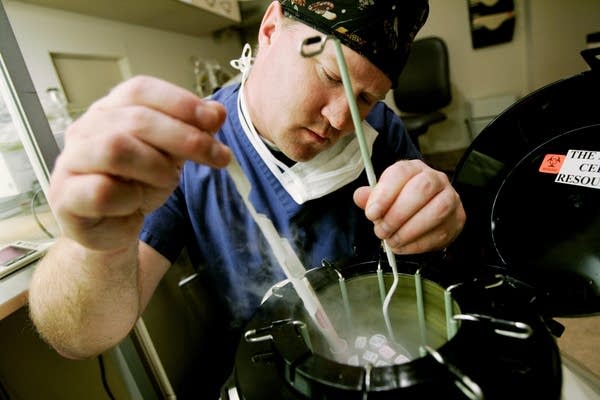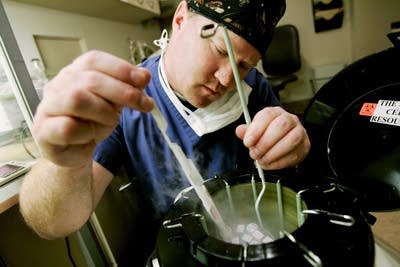34 years after first test tube baby, ethical questions remain
Go Deeper.
Create an account or log in to save stories.
Like this?
Thanks for liking this story! We have added it to a list of your favorite stories.

This month marks 34 years since the first test tube baby was born. It was a girl born in July 1978 in Oldham, England. Experts estimate there are now 5 million people born thanks to IVF and similar interventions.
While the procedures are becoming quite common, ethical questions linger. What are these concerns? And what new questions are being asked over emerging genetic and reproductive technologies?
Susan Wolf, McKnight Presidential Professor of Law, Medicine & Public Policy at the University of Minnesota, will join The Daily Circuit Tuesday to discuss the latest bioethical concerns. Erik Parens, senior research scholar at the Hastings Center, will also join the discussion.
VIDEO: Cracking Your Genetic Code
Watch Cracking Your Genetic Code on PBS. See more from NOVA.
Turn Up Your Support
MPR News helps you turn down the noise and build shared understanding. Turn up your support for this public resource and keep trusted journalism accessible to all.
Dear reader,
Your voice matters. And we want to hear it.
Will you help shape the future of Minnesota Public Radio by taking our short Listener Survey?
It only takes a few minutes, and your input helps us serve you better—whether it’s news, culture, or the conversations that matter most to Minnesotans.




